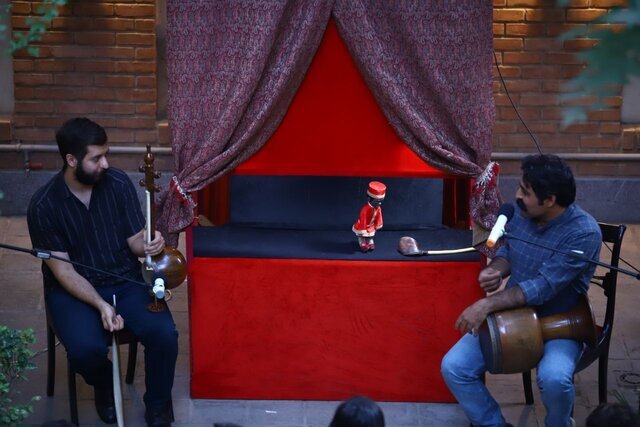First national kheimeh shab-bazi festival wraps up in Tehran

TEHRAN- The first-ever national kheimeh shab-bazi festival came to a close in Tehran on Tuesday, paying tribute to the country's veteran theater artists and newcomers alike. The event honored the winners of the festival, recognizing their contributions to the traditional art of puppetry in Iran.
The event paid homage to some of the pioneers of this traditional art form, ISNA reported on Wednesday.
The ceremony also featured the unveiling of a new book dedicated to kheimeh shab-bazi, showcasing its rich history and cultural significance.
Siavash Satari, the director of the festival, expressed his satisfaction with the event's success. "Sixteen applicants from across the country applied to participate in this festival, and eight were selected," he said. "Unfortunately, some kheimeh shab-bazi artists were not able to participate this year."
Satari also lamented the lack of research in this field, saying that only three research-based works were submitted to the festival. "We hope to see more enthusiasm and dedication in future editions," he added.
The ceremony also featured a tribute to the late Mashallah Asadinejad, a renowned theater artist and pioneer of kheimeh shab-bazi. Asadinejad's son received a commemorative plaque and a golden crown on behalf of his father.
The festival's awards were presented in various categories, including best director, best puppeteer, best researcher, best musician, best storyteller and writer, and best overall performance.
The winners of the festival received plaques, special awards, golden crowns, and cash prizes.
Organized by the Kheimeh Shab-bazi Museum in downtown Tehran, the festival aimed to bring artists together and compete artistically to enhance the quality of this traditional Iranian art form.
Kheimeh shab-bazi is a traditional form of Iranian puppet theater. It is a popular folk-art form that combines puppetry, music, storytelling, and humor in a small chamber setting known as the kheimeh (booth).
In a typical kheimeh shab-bazi performance, a musical performer and a morshed (mentor) engage in a dialogue with the puppets, most notably with the traditional Iranian puppet Mobarak.The puppets are usually made of wood and cloth and are manipulated by puppeteers behind a small curtain in the booth.
The performances often incorporate elements of satire, social commentary, and moral lessons, making them both entertaining and educational for the audience. The dialogues between the morshed and the puppets can be improvised, allowing for spontaneity and audience interaction.
The term ‘kheimeh shab-bazi’ can be broken down to understand its meaning: "kheimeh" refers to a castello or booth where the performances take place, "shab" signifies night - the typical time for such shows, and "bazi" translates to play. Thus, the literal translation is "evening performance in a puppet booth."
This unique art form combines music, storytelling, and puppetry to create captivating performances that have been cherished in Iranian culture for centuries.
Kheimeh shab-bazi has been an integral part of Iranian cultural heritage, representing a unique blend of art, tradition, and entertainment. Today, efforts are being made to preserve and promote this traditional art form through festivals, workshops, and educational programs.
SAB/
